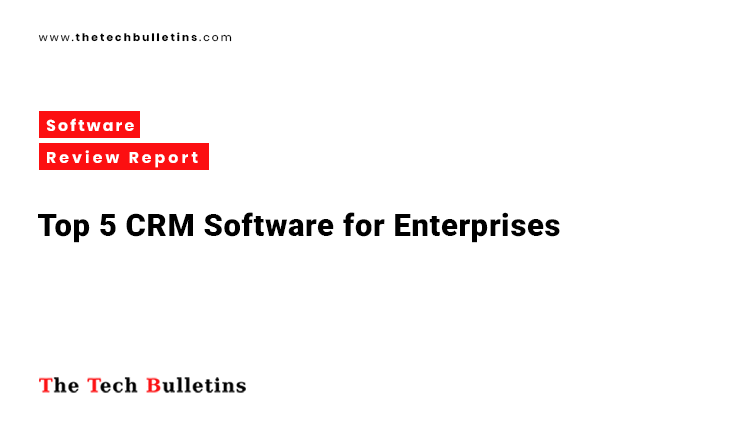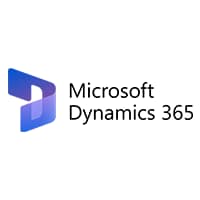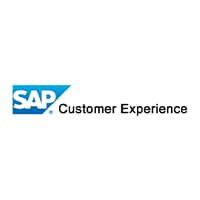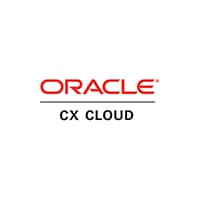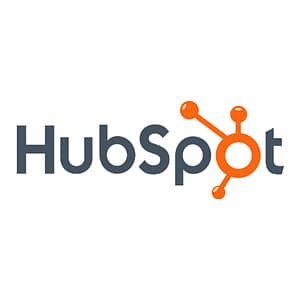Introduction
In today’s hyper-competitive business environment, enterprises must centralize, streamline, and leverage customer data across sales, marketing, and service functions. Customer Relationship Management (CRM) software serves as a strategic backbone—helping organizations track leads, manage pipelines, provide better customer support, and derive insights via analytics.
Yet, choosing the right CRM at enterprise scale is far from trivial. Organizations must balance usability, flexibility, integration depth, scalability, cost, and long-term support. In this article, we review five leading CRM platforms for enterprise use, compare them head-to-head, and provide guidance to help you make the right choice.
Methodology
This review evaluates each CRM across six critical dimensions:
- Ease of Use
- Core Features (sales automation, pipeline management, customer support, analytics)
- Integration Capabilities (APIs, ecosystem, connectors)
- Scalability (ability to grow with your business)
- Pricing Structure (tiers, trial availability, value)
- Customer Feedback (aggregate ratings, common praise and complaints, sample quotes)
Where possible, we also provide benchmark insights for data integration, visualization, and scalability. Finally, we include a comparative table and recommendations by enterprise scenario.
Top 5 CRM Software for Enterprises
1. Salesforce (Sales Cloud / Salesforce CRM)
Overview: Salesforce’s Sales Cloud is often regarded as the gold standard in enterprise CRM. Its ecosystem—including Service Cloud, Marketing Cloud, and AppExchange—makes it ideal for organizations that need high customization, deep analytics, and a mature partner network. It adapts well to complex sales processes and scales globally.
- Key Features:
-
- Highly customizable workflows, objects, and data models
- Built-in AI (Einstein) for predictive scoring and opportunity insights
- Comprehensive reporting and dashboards
- Extensive app marketplace (AppExchange)
- Multi-cloud integration (Sales, Service, Marketing, Commerce)
-
- Benchmark Performance:
- Ease of Use: Good — polished UI, complexity grows with customization
- Data Integration: Outstanding — strong API support and many connectors
- Visualization: Excellent — robust dashboards and analytics tools
- Scalability: Strong — proven at very large deployments
- Pricing:
- Essentials: USD 25/user/month,
- Free Trial: 30 days
- Customer Quote: “The pipeline inspection and forecasting dashboard allows customizing forecast with clicks, which helps our sales leaders see deal health instantly.”
2. Microsoft Dynamics 365 (CRM / Sales)
Overview: Dynamics 365 CRM is best suited for enterprises already invested in the Microsoft ecosystem. Its seamless integration with Azure, Office 365, and Power Platform makes it ideal for organizations seeking deep AI, automation, and modular flexibility.
- Key Features:
- Native integration with Microsoft 365, Outlook, and Teams
- AI and predictive insights (Copilot / intelligent forecasting)
- Modular architecture (Sales, Service, Marketing)
- Custom apps via Power Platform / low-code
- Embedded analytics and dashboards
- Benchmark Performance:
- Ease of Use: Moderate — familiar to Microsoft users, some modules complex
- Data Integration: Strong — especially within Microsoft ecosystem
- Visualization: Good — built-in dashboards, Power BI integration
- Scalability: Strong — designed for large, modular deployments
- Pricing:
- Sales Professional: USD 65/user/month,
- Enterprise/Premium: USD 105+/user/month,
- Free Trial: 30 days
- Customer Quote: “Once users are trained, integration with Outlook and Teams improves productivity — but initial ramp was challenging.”
3. SAP Customer Experience / SAP CRM (C/4HANA)
Overview: SAP’s CRM offerings under the Customer Experience (C/4HANA) umbrella target large enterprises with complex product catalogs, B2B commerce, and back-end integration needs. Ideal for companies already using SAP ERP, it provides unified data and process flow.
- Key Features:
- Deep integration with SAP ERP / S/4HANA
- Advanced product configuration, quoting, and CPQ
- Omnichannel commerce and customer service
- Customer data management (CDP), loyalty, identity
- Strong customization and extensibility
- Benchmark Performance:
- Ease of Use: Moderate to low — steeper learning curve
- Data Integration: Excellent — especially with SAP systems
- Visualization: Good — embedded SAP analytics
- Scalability: Outstanding — built for large, global enterprises
- Pricing:
- Enterprise licensing
- Free Trial: Sometimes available
- Customer Quote: “As data is on cloud, it’s responsive, and the suite gives unified insight — but adoption required heavy training.”
4. Oracle CX (Oracle CRM / Oracle Sales / Oracle Service Cloud)
Overview: Oracle CX is ideal for enterprises that require a comprehensive suite across sales, service, marketing, commerce, and customer data. Best for organizations using Oracle ERP or other Oracle apps, it offers cohesive cloud architecture under a single vendor.
- Key Features:
- Unified customer data platform (CDP) with identity resolution
- AI / adaptive intelligence for recommendations and scoring
- Omnichannel service and field service modules
- Marketing and sales orchestration
- Prebuilt integrations with Oracle ERP / SCM
- Benchmark Performance:
- Ease of Use: Moderate — enterprise strength but can feel dense
- Data Integration: Excellent — especially within Oracle stack
- Visualization: Good to strong — dashboards and analytics modules
- Scalability: Strong — proven at global scale
- Pricing:
- Enterprise modular licensing
- Free Trial: Limited
- Customer Quote: “Oracle CX ties our ERP, CRM, and service together, but customizing modules requires specialized expertise.”
5. HubSpot (Enterprise / CRM Suite)
Overview: HubSpot’s CRM has evolved into a strong enterprise-ready solution, especially for organizations seeking usability, automation, and cross-department integration. It’s particularly suitable for enterprises looking for a low-friction CRM adoption.
- Key Features:
- Unified CRM + marketing + service tools
- Built-in automation, workflows, lead scoring, sequences
- Intuitive dashboards and reporting
- App marketplace and connectors
- Strong onboarding and training resources
- Benchmark Performance:
- Ease of Use: Excellent — intuitive and approachable
- Data Integration: Good — many connectors, sometimes less deep
- Visualization: Moderate to Good — solid dashboards, limited advanced customization
- Scalability: Moderate to Strong — very large deployments may hit limits
- Pricing:
- Free Plan available
- Starter/Professional/Enterprise tiers
- Free Trial available
- Customer Quote: “HubSpot’s CRM is intuitive — our marketing and sales teams adopted quickly with minimal training.”
Comparative Analysis Table
| Software Name | Ease of Use | Data Integration | Visualization | Scalability | Starting Price* |
|---|---|---|---|---|---|
| Salesforce | Good | Outstanding | Excellent | Strong | USD 25 / user/mo |
| Microsoft Dynamics 365 | Moderate | Strong | Good | Strong | USD ~65 / user/mo |
| SAP Customer Experience | Moderate to Low | Excellent | Good | Outstanding | Enterprise licensing |
| Oracle CX | Moderate | Excellent | Good to Strong | Strong | Enterprise licensing |
| HubSpot Enterprise | Excellent | Good | Moderate to Good | Moderate to Strong | Free plan available |
*Starting Price refers to the lowest published paid tier or free availability where applicable.
Recommendations for Enterprises
- Budget-Conscious / Ease > Depth: HubSpot offers ease-of-use, free CRM core, and smooth cross-department integration.
- Microsoft Ecosystem: Dynamics 365 integrates seamlessly with Azure, Office 365, and Power Platform.
- SAP ERP-Centric Enterprises: SAP Customer Experience aligns with existing SAP systems for smooth integration.
- Full CRM + Service + Marketing Suite: Salesforce or Oracle CX provide mature, modular solutions with global scalability.
- Maximum Flexibility + Ecosystem: Salesforce excels in customization, partner ecosystem, and extensibility.
Conclusion
Choosing the right enterprise CRM is about alignment with your tech ecosystem, business processes, and growth plan. Salesforce offers unmatched flexibility and ecosystem breadth; Dynamics 365 suits Microsoft-centric enterprises; SAP Customer Experience fits SAP-based ERP environments; Oracle CX delivers modular, comprehensive coverage; HubSpot prioritizes ease-of-use and fast adoption.
Ultimately, the “best” CRM depends on your organization’s architecture, priorities, and willingness to trade off complexity versus cost.
References
- G2, Capterra, TechRadar CRM reviews
- Vendor product pages and pricing documentation
- Industry reports and comparative analyses








